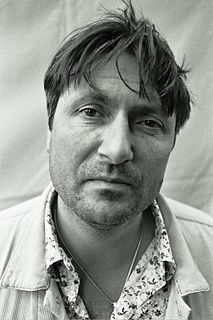A Quote by Vikram Seth
Poetry, I think, intensifies the reader's experience. If it's a humorous facet of the story, poetry makes it more exuberant. If it's a sad facet, poetry can make it more poignant.
Related Quotes
My own experience as a reader and writer has been that the more I read, and the more I live, the more different "types" of poetry I grow to love. I might not even believe anymore that there are "types" of poetry at all. I've come to love things I once would snootily have dismissed. Of course I still have my likes and dislikes, and there are things I think are just plain old bullshit, but more and more I am far more trusting of my loves than my dislikes.
Poetry is the most informative of all of the arts because everything comes down to poetry. No matter what it is we are describing, ultimately we use either a metaphor; or we say "that's poetry in motion." You drink a glass of wine and say, "that's poetry in a bottle." Everything is poetry, so I think we come down to emotional information. And that's what poetry conveys.
We do have to learn poetry at school. Poetry is interesting to me, particularly Chinese poetry. It's like an ancient form of song. There's five sentences, seven sentences - they're very different from English poetry. Chinese poetry is much more rigorous. You can only use this many words, and they will form some kind of rhythm so people can actually sing it. To me, poetry is quite abstract but also quite beautiful.
When I devoted myself to poetry - and poetry is a very serious medium - I don't think the people that knew me as an individual with that tongue-in-cheek kind of humor...well, it didn't always lend itself to my poetry. When you're writing poetry, it's like working with gold, you can't waste anything. You have to be very economical with each word you're going to select. But when you're writing fiction, you can just go on and on; you can be more playful. My editor's main task is to cut back, not ask for more.
It’s never going to be very mainstream. One reason is that poetry requires concentration, both on the part of the writer and the reader. But it’s kind of unkillable, poetry. It’s our most ancient artform and I think it’s more relevant today than ever, because it’s one person saying what they really believe.
There's a sameness about American poetry that I don't
think represents the whole people. It represents a poetry
of the moment, a poetry of evasion, and I have problems
with this. I believe poetry has always been political, long
before poets had to deal with the page and white
space . . . it's natural.





































